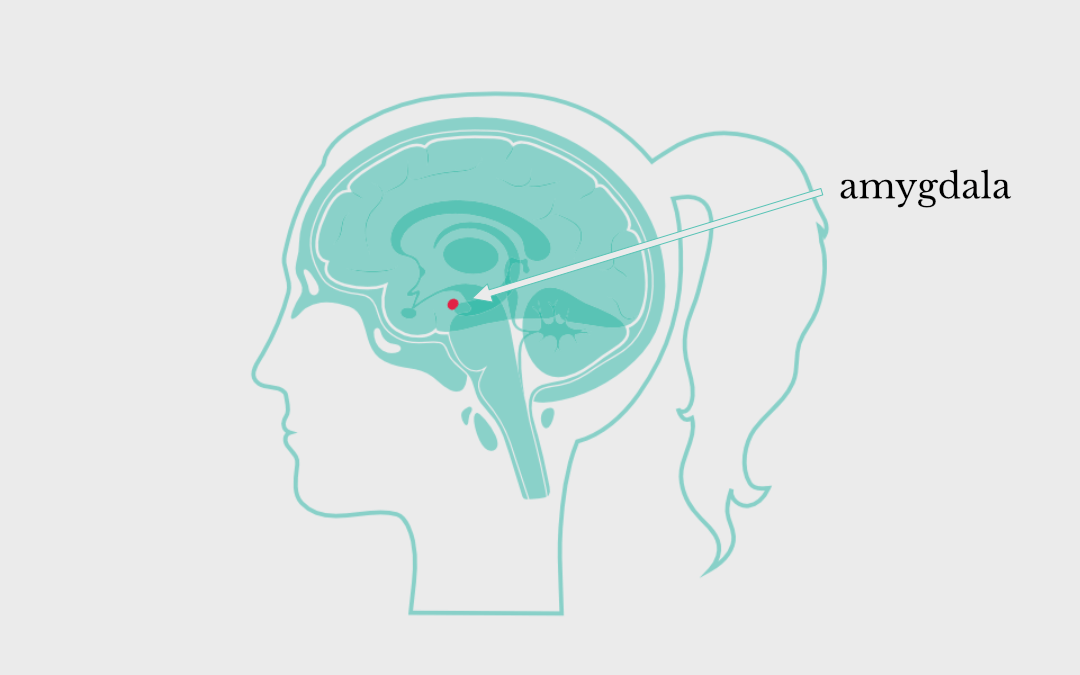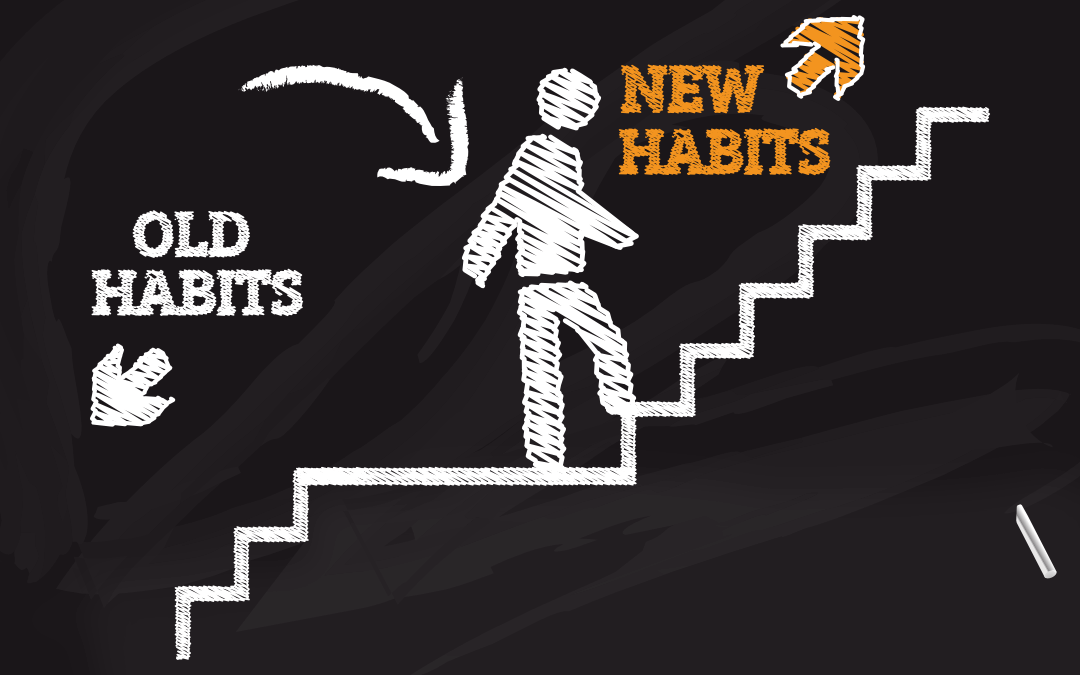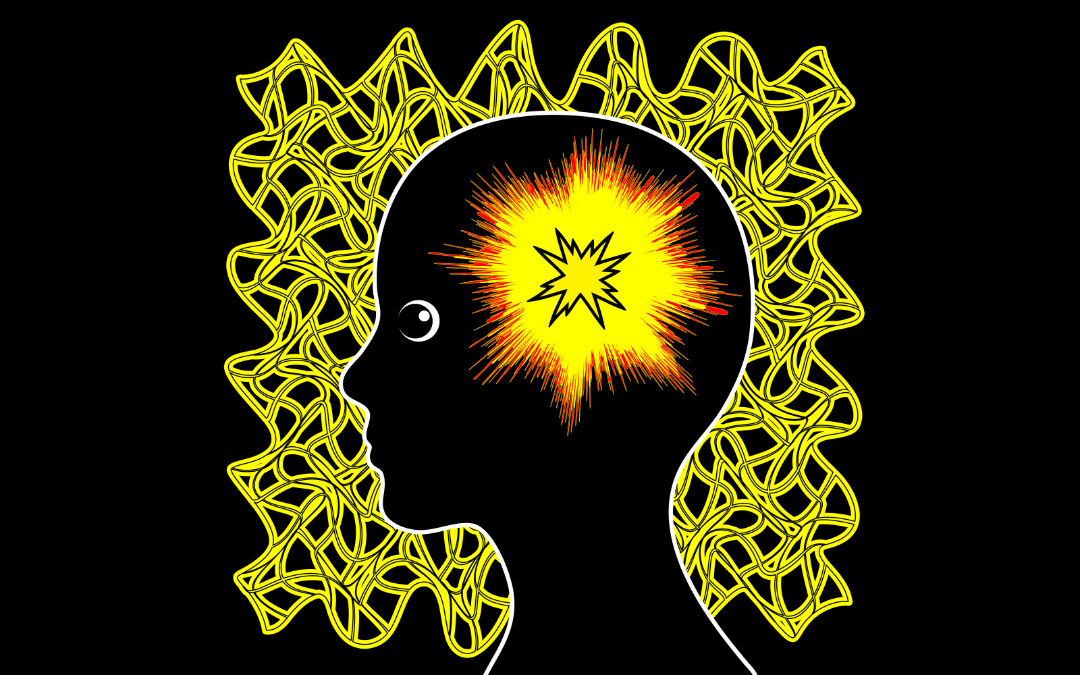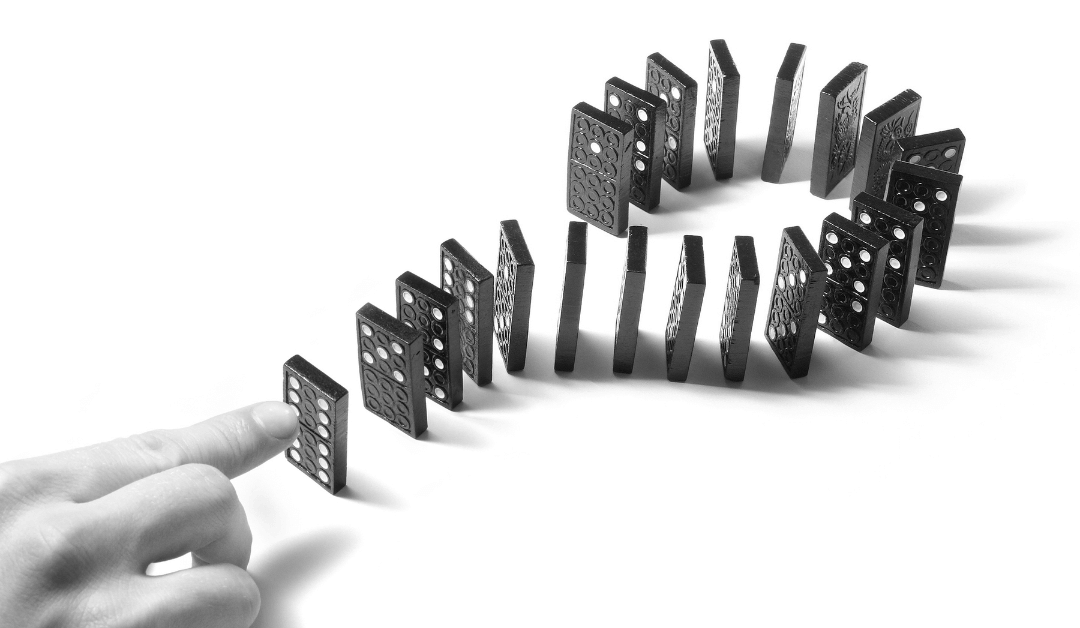Triggers are events that set off an emotion. This process is perfectly normal. Emotions are part of our biochemistry and are supposed to make our lives easier. When bad habits and traumatic events hijack the system though, events turn into triggers that make us feel out of control.
A brilliant system
Everything that happens to you, every experience you have and every thought you thinkis processed on some level in different areas of your brain. Your amygdala gets all the information first.
If what is happening matters to you, the amygdala (= part of your brain) tags it with an emotion and files it away as a memory. When a new event similar to an old one happens, your amygdala autmatically sets off the chain reaction in your body and your mind for that particular emotion.
For example, if you get bitten by a dog, then seeing another dog will scare you. That’s how we learn from our past and react faster next time. You’ll be more careful around dogs and snatch your hand away faster. A brilliant system!

The amygdala
The amygdala is not the part of your brain where conscious and rational thinking happens. In fact, there’s not “thinking” in the sense we usually mean it at all. The amygdala is purely reactive and works on an unconscious level. That’s why your emotions are the unconscious processing of events.
This system is one of the oldest in our body and has been so successful in keeping us safe, that the amygdala gets every bit of sensory information a few nanoseconds before the “thinking” parts of your brain. If necessary, it can even switch off your rational thinking completely.
If you are in danger, you can react without thinking first. That’s your amygdala. When you have a bad feeling about someone, it’s because the person reminds you in some way of a negative event in your past even if you don’t consciously remember it. The amygdala simply brings up the old emotion and you dislike or distrust the new person. You have an instinctive reaction to them.
There are no pros or cons and because it is supposed to help you react fast, there’s not even much precision. When something happens that reminds you even mildly of a bad experience, out comes the fear, anger or disgust. The amygdala works on the premise of “act first, think later”.
Triggers
In general, “to trigger” is simply a synonym for “to start something” or “set something off”. It’s often used when we talk about chain reactions that are out of our control, like strong emotions.
However, in most cases, we are much more in control than we think. Our emotions do not have to ride shotgun and they definitely do not need to be in charge. Emotional Intelligence Skills get you back behind the steering wheel because they replace bad habits, which is the real reason why emotional responses become overwhelming triggers.

Emotions become habits
We learn from experience. What this means is that the more events we experience, the more emotional tags they have. When something new happens to us, we can rely on past experiences to decide how we feel about this new event.
If we feel an emotion repeatedly, especially an uncomfortable one like fear or anger, it can turn into a habit. Emotions are cumulative. Every hit of fear builds on the last hit of fear. After a while, even mildly worrying things suddenly scare you because your body cannot keep up with releasing all that fear. Before you know it, you suffer from anxiety.
The more often you experience an emotion, the more likely you are to associate it with new events too. You might have sudden panic attacks every time you do something new. Or if anger has become your go-to emotion, you might find yourself shouting at people for no reason. Repeat them often enough and emotions become habits.
Getting the system back on track
Two EI Skills are important if you want to get back to a base level. Daily emotional hygiene helps your body break down the excess chemicals that are released during an emotions response. Pick 2-3 exercises every day.
The second equally important skill is self-awareness. It allows you to pause before you make decisions or take action based on your emotions. When you are self-aware, you simply acknowledge and feel the emotion raging through your body. Then you decide what you want to do next.
Once you practise emotional hygiene and self-awareness for a while, you’ll still have emotional responses but they will no longer “trigger” you. You’ll be back in charge of how you want to react.

Trauma
The reactions I described so far, only apply to normal events. Yes, most of us have bad things happen to us at some point in our lives. We all experience fear and anger on some level. But trauma is different.
Traumatic events cause such strong emotions that the amygdala tags the event with extreme reactions. When anything even remotely similar to that event happens, the amygdala takes over and switches off the pre-frontal cortex. People in this state literally do not know what they are doing because the amygdala starts the autopilot.
This can be a reaction to extreme anger, or extreme fear. Some people run away and seem to wake up in a new location not knowing how they got there. Others become violent and don’t remember what they did.
Professional help
Traumatic experiences literally change the brain structure. People who have gone through them are no longer the same. It’s important to understand that trauma and PTSD need to be treated by professionals. If you suffer from either, you need a safe environment to work through the triggers.
If you want to learn more on the subject, I highly recommend Emotional Intelligence by Daniel Goleman. He explains what happens during trauma and PTSD in much more detail than I can do in this post. Ok. Back to “normal” triggers.

Disarmed triggers
If an emotion, like fear or anger, has taken over your life because even the smallest events trigger overreactions, you might feel out of control. Or you rationalise your knee-jerk reactions afterwards. “I had every reason to shout!” you tell yourself.
No, you didn’t. What’s more, every time you keep reacting in the same way, every time you let your triggers take over your reactions you form yet another event labelled with an unhelpful emotion. You strengthen a bad habit.
But your life does not have to stay this way. Whenever you’ve had enough of your triggers, replace bad habits with emotional hygiene and self-awareness. Once you do, triggers turn back to events and you get to decide how you want to react to them.
